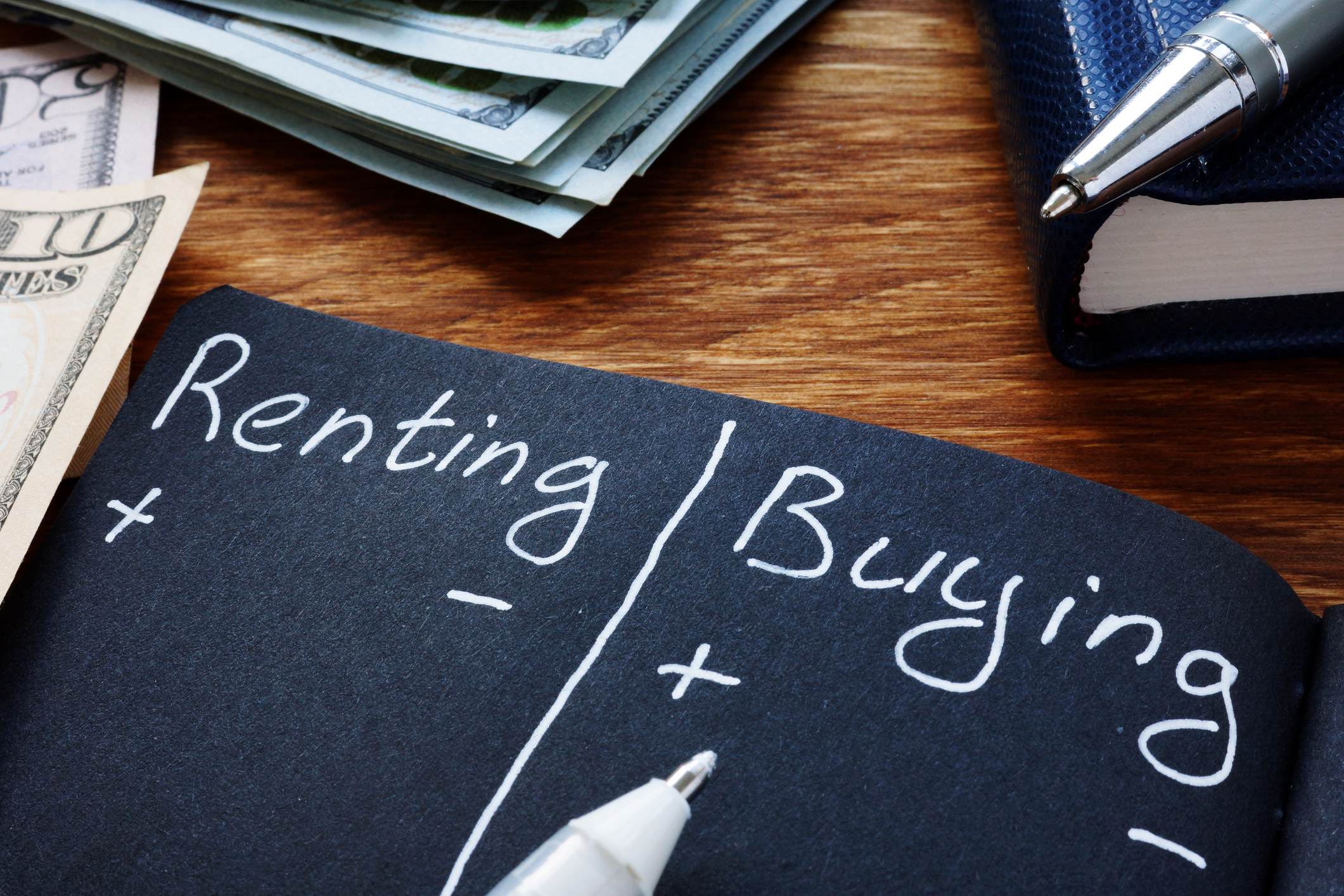Start with a clear picture of what you can afford
Before you compare options, get real about your numbers. Affordability isn't only about income it includes debts, monthly expenses, savings goals, and how much you can comfortably set aside for housing.
Use a home affordability calculator or run a simple budget: list your monthly obligations, current savings, and the amount you’d like to keep as an emergency cushion. This clarity turns a stressful decision into a practical one. Even if the numbers show buying isn’t right now, they help you plan concrete next steps.
The financial pros and cons of renting
Renting works best when flexibility matters most. It usually requires a low upfront cost (security deposit + first month’s rent) and shields you from big maintenance expenses and property taxes. That makes budgeting simpler and allows you to live in neighborhoods that might otherwise be unaffordable.
- Pros: Lower upfront costs; predictable monthly bills; landlord handles major repairs; easy to relocate.
- Cons: Payments don’t build equity; rent can increase; less control over your living space.
If your job or life plans are uncertain, or you value mobility, renting often makes practical sense—especially short term.
The financial pros and cons of buying
Buying can be a long-term wealth-building move. Mortgage payments gradually build equity, and if your home appreciates you create an asset. Owners also get complete freedom to renovate and personalize their property.
- Pros: Builds equity; potential appreciation; freedom to modify your home; predictable payments with a fixed-rate mortgage.
- Cons: High upfront costs (down payment, closing fees); ongoing expenses (maintenance, taxes, insurance); exposure to market swings.
Buying is usually the right choice when you’re financially ready and planning to stay put for several years. If you’re unsure how long you’ll be in one place, that flexibility of renting can outweigh the long-term benefits of ownership.
Beyond the numbers: lifestyle matters
Your lifestyle often decides this for you. Renting lets you pivot to move for work, try a new neighborhood, or travel without being tied down. Buying gives you roots: community ties, stability, and the freedom to shape your home.
Ask yourself: Do I value flexibility right now, or am I ready to put down roots? Your honest answer matters as much as the math.
How market conditions influence the choice
Market factors like mortgage rates, local home prices, and rental demand can shift the balance. High mortgage rates or inflated home prices may make renting the smarter short-term move. When rates drop and prices stabilize, buying may deliver more value long-term. Always factor in local trends: some cities have rental costs similar to mortgage payments, while in others ownership remains out of reach for many.
First, think long-term. Renting might save money now, but owning a home could offer financial benefits in the future if you plan to stay put for several years. Second, calculate total costs, not just the monthly payment. Maintenance, utilities, and other hidden expenses can change the equation significantly. Finally, don’t rush the process. A housing decision should align with your financial goals and emotional readiness.
A simple decision framework
- Check affordability: Run affordability and monthly cost comparisons (include taxes, insurance, and maintenance).
- Define your horizon: If you’ll be in one place 5+ years, buying often makes sense; if not, renting is likely better.
- Mind your lifestyle: Prioritize mobility or stability based on where you are in life.
- Get professional advice: A financial planner or housing specialist can model scenarios tailored to you.
Quick tip: Don’t compare just the monthly payment. Compare total costs including maintenance, insurance, taxes, and potential rent increases to get the true picture.
Conclusion
Both renting and buying have clear benefits. The best choice depends on your financial readiness, how long you plan to stay, and what you value day-to-day. Take time to gather your numbers, reflect on your lifestyle priorities, and consider a professional consultation if you want personalized guidance.











